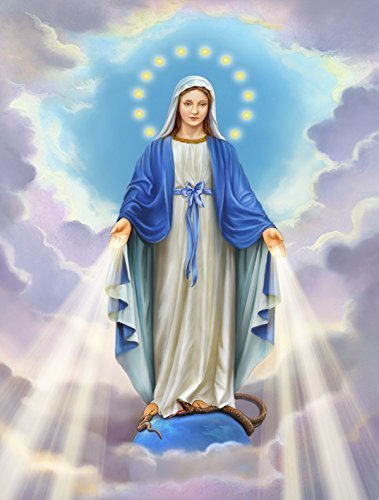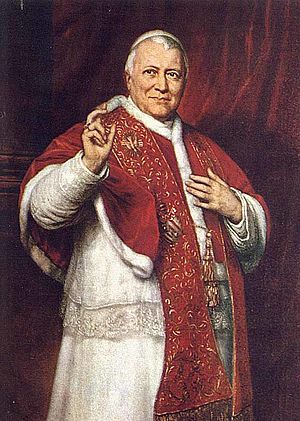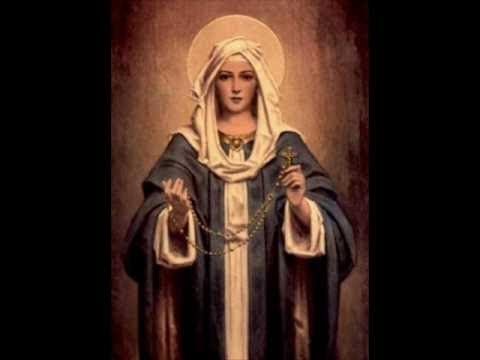“Was Mary really anything special?”
This question was asked here in early 2022. I had already made my response, but as today, August 15th, is the Feast of the Assumption of Mary, a significant feast day for Catholics, I will take this opportunity to expand on my answer and do some basic apologetics on Marian belief in the Catholic Church. This will by no means be extensive, so be forewarned.

Mary, the Queen Mother
At the Annunciation of the Birth of Christ, as recorded in Luke 1.26-38, the Archangel Gabriel tells Mary that she will conceive and bear a son, Who “will be called the Son of the Most High; and the Lord God will give Him the throne of His father David...and of His Kingdom, there will be no end” (Luke 1.32-33).
The relevance of the throne of David is found in the First Book of Kings in the Old Testament (1 Kings 2), when Solomon seats his mother, Bathsheba, next to him on the throne as what is known as the “queen mother”. In those days, the king’s mother would reign with him rather than the king’s wife because the king would often have multiple wives; polygamy was common practice then, even among the Jews. So it was for the sake of simplicity. Another reason is that the king’s mother was also the flesh link between the king and his father.
The queen mother would bring cares and concerns of the people of Israel to the king and would address him as “lord”. Conversely, the king, still subject to the Fourth Commandment (“Honor thy father and thy mother”) would rise and bow to her. She would herself wear a crown and be seated at the king’s right hand. That she is enthroned at his right is important, as the right was a position of honor and authority, as referenced in Psalm 110.1 and Psalm 45.9. So the role of the queen mother was not merely some ceremonial position, but was an official one in the Kingdom of Israel.
Another translation for the title of the queen mother was “gebirah”, or “Great Woman”.
Mary, the Mother of God
This title might seem like nonsense. If God is eternal and therefore has no beginning or end, how do Catholics say He have a mother?
The answer to this question is quite simple. We only need to look at the first chapter of Saint John’s Gospel. “In the beginning was the Word, and the Word was with God, and the Word was God...And the Word was made flesh and dwelt among us…” (John 1.1, 14). There’s only one place where this would have happened: in Mary’s womb, clearly demonstrating on its own that Mary has an absolutely indispensable role in the Christian life.
Mary, the First Christian and the First Evangelist
Mary was the first one to receive the Word of God. And not only that, but she carried the Word in her womb, gave birth to and nursed the Word, Jesus Christ. In accordance with what I said above, that necessarily makes her a Christian, and not just any Christian, but the greatest and most excellent one. And following from that, she would also in a very real way become the first Evangelist, the first one to announce Christ to another, as the following episode details Mary’s visit to her kinswoman, Elizabeth.
Think about it this way. If we want to know someone or something better, then we ought to consult a primary source, someone who knows the person or has achieved the thing. They will have a better understanding and knowledge of the person or thing in question. Our participation in the life of another person or in an accomplishment is the greater of two goods, but we nevertheless remember those who helped us along the way.
As it relates to the Christian life, faith comes through hearing (Romans 10.17); one cannot know or come to Christ if He is not proclaimed to them. As Mary exclaims to Elizabeth in Luke 1.46, “My soul magnifies the Lord”, and hers quite literally did at that point, as Christ, the God-Man, was a tiny unborn child in her womb. And her deeper and more intimate knowledge of Him would reasonably carry on throughout the course of her earthly life.
Mary, Conceived Without Sin
Some Christians look at Catholics’ belief in Mary’s Immaculate Conception, the belief that Mary was conceived without the stain of original sin, and claim that this contradicts the Bible, citing Luke 1.47 in which she says “my spirit rejoices in God my Savior”. Imagine a woman walking along a busy street as she trips and falls. A man rushes to her aid and pulls her out of the street before she is hit by a vehicle. Now imagine another scene in which the same woman time trips but before falling, the man notices and grabs her by the arm, thus preventing her from injuries. In each case, was the woman not saved by the swift action of the man?
So it was with Mary. As Blessed Pope Pius IX wrote in his 1854 encyclical Ineffibalis Deus...
“The most Blessed Virgin Mary was, from the first moment of her conception, by a singular grace and privilege of almighty God and the virtue of the merits of Jesus Christ, Savior of the human race, preserved immune from all stain of original sin.”

To dive in a little deeper, we need to briefly revisit the Annunciation dialog between Mary and the Archangel Gabriel. In the original Greek text of Luke, the phrase “full of grace” was written “kecharitomene”. This would be what is called a perfect passive participle, which indicates an action completed in the past but that still continues or has effects in the present. A transliteration then would be “Hail, she-who-was-fully-graced-in-the-past-and-continues-to-be-so-now”.
As such, there is no contradiction between Mary’s declaration of God as her Savior and the doctrine of the Immaculate Conception.
Did Mary have other children than Jesus?
No. At the Annunciation cited above, Gabriel tells Mary that God will “...give [Jesus] the throne of His father David…” (Luke 1.32). How could David be Jesus’ father when, by that time, David had been dead for nearly a thousand years? The Bible records David, between his wives and mistresses, having approximately twenty-one children, many of whom had children themselves. So if Jesus is recognized as the Son of David, would it not reasonably follow that other inhabitants of Israel during the earthly life of Christ could also acknowledge David as “father” and therefore be known as “brothers of Jesus”? Furthermore, did He Himself not say that those who do the will of God are his brother, sister, and mother (Mark 3.35, Matthew 12.50)?
So leaving aside early Jewish thinking regarding family, paternity, and heritage and the languages of the time, even from a modern vernacular standpoint, the claim that Jesus had other biological siblings and therefore Mary was not a perpetual virgin makes absolutely no sense whatsoever.
Devotion to Mary

The first thing that should be explained about devotion to Mary is what it is not. Catholics do not adore or worship Mary, as that is due only to God. Rather, we honor and revere her, and rightly so. If we believe Christ to be our King, then Mary is His Queen, as noted above. Some might claim one of the most common Catholic prayers, the “Hail Mary” prayer, as worship of Mary. However, the dictionary definition of the word “hail” is “to cheer, salute, or greet”. The rest of the prayer is an acknowledgment of her blessedness and a humble request for her to pray to her Divine Son, Jesus Christ, for us.
Here is the English text of the prayer, for those not familiar...
Hail Mary, full of grace, the Lord is with thee. Blessed art thou amongst women, and blessed is the fruit of thy womb, Jesus. Holy Mary, Mother of God, pray for us sinners now and at the hour of death. Amen.
Another and more traditional title for the Hail Mary prayer is The Angelic Salutation, called so because of the Archangel Gabriel’s greeting to Mary, “Hail, full of grace” (Luke 1.28) at the Annunciation as described in Saint Luke’s Gospel. And if a faithful Christian believes that God is a God of the living and not the dead, as noted in Matthew 22.32, Mark 12.27, and Luke 20.38, then they ought to believe that Mary, of all people, is among the blessed living in Heaven and is the strongest possible intercessor for us.
And as a closing note, something I personally have often meditated on in prayer is that no one was more sorrowful at the Passion and Death of Jesus than Mary, but likewise, no one was more joyful at His Resurrection.
Conclusion
Mary is truly the best and strongest advocate to Christ on behalf of faithful Christians and ought to be called upon for aid in all necessities. There is much more that can be said, but that will have to be for another time. In the meantime, thank you for reading and have a wonderful day.
Immaculate Heart of Mary, pray for us
Our Lady of Guadalupe, pray for us
Pope Blessed Pius IX, pray for us
Published on August 15th, 2022, the Feast of the Assumption of Mary into Heaven
Most Helpful Opinions